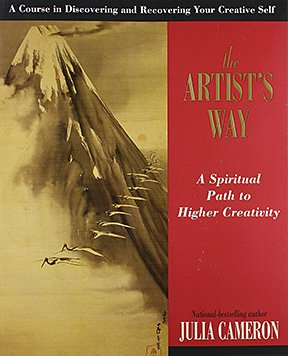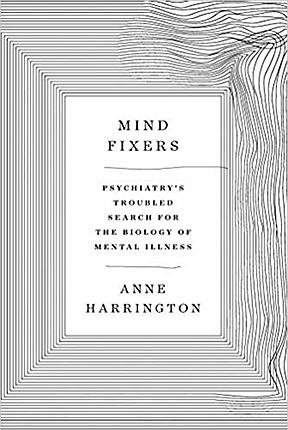Listening To Ourselves
Long ago and not so far away, I heard someone in a support group say that people often say the things that they need to hear. Writer Flannery O’Connor wrote, “I don’t know what I think until I read what I say.” In a recent interview on “Q,” a Canadian show broadcast on WRVO, British musician Peter Townshend stated that, following his recovery from drinking too much alcohol, he found it difficult to create. “The Artist’s Way,” by Julia Cameron, helped Townshend to tap into himself again.
 Shortly after “The Artist’s Way’s” publication in 1992, an acquaintance suggested I read the book; I did and for a brief time, I attempted Ms. Cameron’s basic recipe: for twelve weeks, one should quickly write three longhand pages every morning and then discard those pages.
Shortly after “The Artist’s Way’s” publication in 1992, an acquaintance suggested I read the book; I did and for a brief time, I attempted Ms. Cameron’s basic recipe: for twelve weeks, one should quickly write three longhand pages every morning and then discard those pages.
I worked full time so writing every morning would require me to get up earlier and I didn’t want to. Also, the idea that I should commit three pages of work to paper only to toss it seemed wasteful. I suppose, and I suppose I should read the book again, that writing three longhand pages was itself intended to push someone past not writing. Ms. Cameron suggested daily writing overcomes “blurts.” My take: blurts are the negative self-talk that trap people stuck in self-destructive neurochemically-wired patterns associated with depression and related issues.
I have an inner critic who tells me both to not write and then, to not toss out anything I do write. (Toss out?) Epiphany here: as I write these words, I am suddenly aware that it was in the early 1990’s that I first sought therapy only to be told I was in denial and unwilling to deal with my issues. That is a crazymaking observation for a person seeking therapy to deal with her issues to hear from her therapist.
Around that time, I journaled when I could, in notebooks, sometimes using my non-dominant left hand to write, because yet another writer, John Bradshaw advised in his 1988 “Healing the Shame that Binds You,” that writing with the non-dominant hand opens up neural pathways in the brain. Bradshaw suggested that writing affirmations with the non-dominant hand might override early negative learning.

Now, as I write these words, the religious song “Oh Come Oh Come Emmanuel” has started playing in my head. Long ago, I would sing “… Emmanuel” to myself while imagining falling snow and windows lighted against the dark. “… Emmanuel” does seem to connect to and flow naturally from the subject matter I’m writing about right now: thoughts, thoughts committed to paper, and personal history. I share with Julia Cameron and John Bradshaw a Roman Catholic upbringing and a journey into recovery.
Anyway, who is this Emmanuel whom we’re calling to help us? The Hebrew translation of “Emmanuel” is “God is with us.” Some people might believe Emmanuel is a person who was once here and might again return. Others might see Emmanuel as a personal or collective higher power or a connection to that power. I know what I believe. It’s not my job to convince anyone of anything.
I believe most personal growth involves challenging overlapping physical, emotional, mental and substance, including food, issues. Many issues stem from trauma. Trauma requires a multifaceted individualized response. Healing takes time.
Today, I do discard much of what I write. When, too late, I find typos or confusing wording in writing intended for someone else to read, I feel anxious and I tell myself that I should never write again. And, then I write again. From the moment the first writers scratched the first symbols or words onto papyrus or a cave wall, readers have ignored, disagreed with, and “tossed” what they read.
 In Table Hopping’s “My Mind to Yours” column, I’ve written about my brain, the brain, and the 2009 NIH Human Connectome Project whose purpose was to map the neural pathways that wire all human brains. I just read Harvard Professor Anne Harrington’s “Mind Fixers,” a history of “Psychiatry’s Troubled Search for The Biology of Mental Illness.” Professor Harrington’s chapter “False Dawn” reports divisions between the American Psychiatric Association’s DSM-V diagnoses and strictly biology-based neuroscience. Neither fields, alone, have lessened human suffering. And, how can scientific method account for all individual circumstances and experiences?
In Table Hopping’s “My Mind to Yours” column, I’ve written about my brain, the brain, and the 2009 NIH Human Connectome Project whose purpose was to map the neural pathways that wire all human brains. I just read Harvard Professor Anne Harrington’s “Mind Fixers,” a history of “Psychiatry’s Troubled Search for The Biology of Mental Illness.” Professor Harrington’s chapter “False Dawn” reports divisions between the American Psychiatric Association’s DSM-V diagnoses and strictly biology-based neuroscience. Neither fields, alone, have lessened human suffering. And, how can scientific method account for all individual circumstances and experiences?
Many ideological groups suggest the cure for troubled minds is stronger faith in God, in authority, and sometimes, in the practice of listing and discussing one’s flaws with clergy or other authority. Some faith-based groups are more likely to speak the language of “tough love.” Love should not feel tough to either the subject or the object.
Happy solstice.
Peace on earth.










